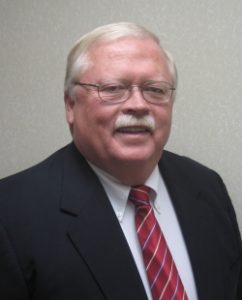Former CEO talks investing to grow
 Craig Newman has seen the importance of investing in personal, professional and organizational growth over the course of his 37-year career. The retired president and CEO of AgReliant Genetics not only knows the impact continuing education had on his own career, but also the way it has changed the individuals and organizations around him.
Craig Newman has seen the importance of investing in personal, professional and organizational growth over the course of his 37-year career. The retired president and CEO of AgReliant Genetics not only knows the impact continuing education had on his own career, but also the way it has changed the individuals and organizations around him.
Throughout his career, Newman, who is the Executive in the Classroom for the 2019 American Seed Trade Association Management Academy, was dedicated to being a driver and promoter of professional development in the seed industry.
“There are three things that really come out of continuing education: stimulated thinking, broadened knowledge and perspective, and motivation to improve and excel,” Newman said. “Professional development also offers opportunities to improve on areas of deficiency.”
He also says continuous improvement has been a common theme in the leaders around him.
“Most of the top managers I know embraced and took advantage of professional development programs regularly,” he said. “Professional development has played major roles in helping all kinds of professionals advance in their careers.”
On the flip side
Once employees advance to the managerial level and above, their responsibilities around developing talent shift a little bit. It remains as important as ever for managers to continue improving themselves, but it also becomes their responsibility to help employees grow.
That’s a role Newman has always taken seriously.
“It is a major responsibility of an executive or a manager to invest in developing employees,” he said. “Investing in employees can improve their productivity, motivate them and prepare them for increasing responsibilities. It’s also a big part of succession planning.”
But it doesn’t end there. In addition to encouraging participation, managers and executives have other roles in developing their people. Newman’s advice:
- Continue to follow up with employees after professional development programs.
- Allocate time for employees to review what they’ve learned to help them retain it.
- Make retention part of employee goals and consider incentivizing them.
- Actively coach employees on specific subjects and areas of development.
This is especially important if those seeking professional development opportunities are going to retain and implement the valuable lessons they’ve learned.
“Everyone is excited the day of the development program, but that doesn’t last long without dedication and encouragement,” he said. “Companies have to help employees focus on what they’ve learned and reinforce it. Employees have to also take the initiative to persistently reinforce it themselves.”
Development for seed professionals
One of the programs Newman frequently encouraged employees to attend is the annual ASTA Management Academy, which is March 4-8 on Purdue University’s West Lafayette, Ind., campus. One reason he had so many employees attend the academy is because it is uniquely tailored specifically to the seed industry—both to professionals who are experienced decision makers and those who are new to the industry.
“The ASTA Management Academy is the best professional development program for seed industry professionals available today because it is professional, educational, diversified, effective and motivating,” Newman said.
The academy focuses on a variety of management topics, including marketing, finance, strategy and organizational leadership. It is the longest-running program at the Center for Food and Agricultural Business. In the program’s 30-year history, it has graduated over 1,100 participants representing more than 300 firms worldwide.
ASTA members receive a registration discount as part of their association membership, but non-members also are welcome to attend. Learn more and register here.
Tags: Ag Retail, Agribusiness, Asta Management Academy, Input Suppliers, Leadership, Management, Retailers
RELATED POSTS:
Optimizing Sales Management: Knowledge, Coaching and Continuous Improvement
While we used to think that exceptional salespeople possessed an innate gift, recent data suggests the impact of today’s sales managers in nurturing and refining this gift to unlock its fullest potential.
A great moment for value-based sales in agribusiness
Value-based sales can empower companies to craft compelling value propositions, understand the customer’s business model and effectively communicate to stakeholders.
How can big data empower the development of new products?
Data is one of the most powerful resources for a company. It enables accurate decision-making and minimizes risk, ensuring greater revenue and sustainable growth.
